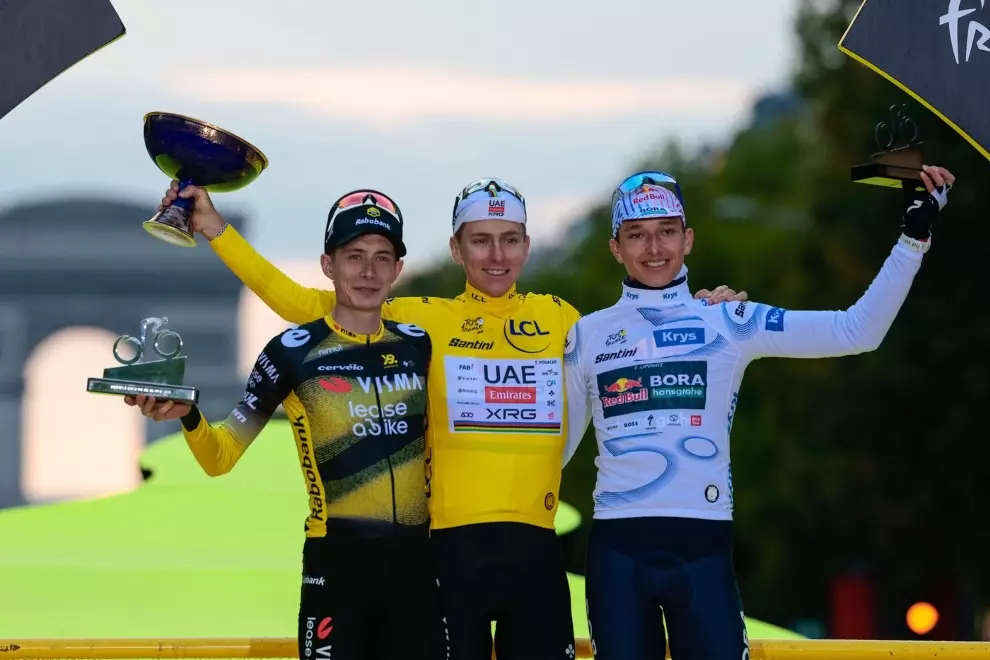What is behind the curse?
The study was conducted by Dr Thomas Perneger at the University of Geneva and it looked at professional cyclists who won the World Championship Road Race or the Tour of Lombardy between 1965 and 2013. They tracked their professional wins in the year when they won and in the two following years. They tested three hypotheses that would explain what is behind this curse.

- First was the “spotlight effect,” people notice more when a champion loses.
- The second was the “marked man hypothesis,” the champion wears a highly visible jersey and therefore is marked closely by competitors.
- And finally, “regression to the mean,” which says that, on average, a successful season will be likely followed by a less successful one.
Riders in the rainbow jersey really do win less often!
The results of this study show that world champions would win, on average, 5,04 times in the year when they win their title. Their wins drop to 3,96 during the following season when they race in the rainbow jersey just like the curse predicts! But in the third year, when they raced without the rainbow jersey again, their average wins drop further to 3,47. Similar drops were observed in winners of the Tour of Lombardy starting at 5,08 in the year of their title, followed by 4,22 the year after, and 3,83 in the third one.

The curse is just statistics
The author of the study sums these results in a very pragmatic way, making everyone feel like the curse might not be a real thing. “The relative lack of success was not restricted to the season in the rainbow jersey but persisted in the following season and affected equally the winners of the Tour of Lombardy. There was nothing remarkable about the year spent wearing the rainbow jersey.”
The conclusions in the study itself said that even though the champion is significantly less successful during the year when he wears the rainbow jersey than in the previous year, it is best explained by regression to the mean, not by a curse. Perhaps this is also illustrated by the fact that only Peter Sagan on the men’s and Jeannie Longo on the women’s side are the only ones who were able to win the world cup 3 times in a row.




